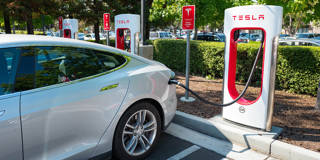Addressing climate change will require a massive transition from fossil fuels to cleaner technologies, as well as behavioral changes on the part of millions of households. The existing economic system can manage the challenge, but political leaders should be clear about what it will entail.
PARIS – The latest report from the Intergovernmental Panel on Climate Change leaves no doubt: global warming will continue until at least 2050, even if greenhouse-gas emissions are drastically reduced in the coming decades. If they are cut too slowly, the kinds of heat waves, droughts, heavy rains, and flooding experienced this summer will become more frequent. More catastrophic outcomes, such as abrupt, irreversible changes in oceanic circulation, cannot be ruled out.
Fortunately, the public is increasingly convinced of the urgency of the problem. A recent United Nations poll indicates that nearly two-thirds of people across 50 countries regard climate change as an emergency. The question, then, is what climate action should entail. How will it affect incomes, jobs, and living conditions? Most citizens simply don’t know, because they are being offered very contrasting perspectives on the future.
On one hand, techno-optimists are confident that new, green innovations can go a long way toward solving the problem. Their vision of the future is simple: we will be driving electric cars instead of petrol cars, traveling on high-speed trains instead of taking planes, and inhabiting carbon-neutral houses. The rich may have to give up holidaying on other continents, but everyone else’s lifestyle will essentially be preserved.

PARIS – The latest report from the Intergovernmental Panel on Climate Change leaves no doubt: global warming will continue until at least 2050, even if greenhouse-gas emissions are drastically reduced in the coming decades. If they are cut too slowly, the kinds of heat waves, droughts, heavy rains, and flooding experienced this summer will become more frequent. More catastrophic outcomes, such as abrupt, irreversible changes in oceanic circulation, cannot be ruled out.
Fortunately, the public is increasingly convinced of the urgency of the problem. A recent United Nations poll indicates that nearly two-thirds of people across 50 countries regard climate change as an emergency. The question, then, is what climate action should entail. How will it affect incomes, jobs, and living conditions? Most citizens simply don’t know, because they are being offered very contrasting perspectives on the future.
On one hand, techno-optimists are confident that new, green innovations can go a long way toward solving the problem. Their vision of the future is simple: we will be driving electric cars instead of petrol cars, traveling on high-speed trains instead of taking planes, and inhabiting carbon-neutral houses. The rich may have to give up holidaying on other continents, but everyone else’s lifestyle will essentially be preserved.